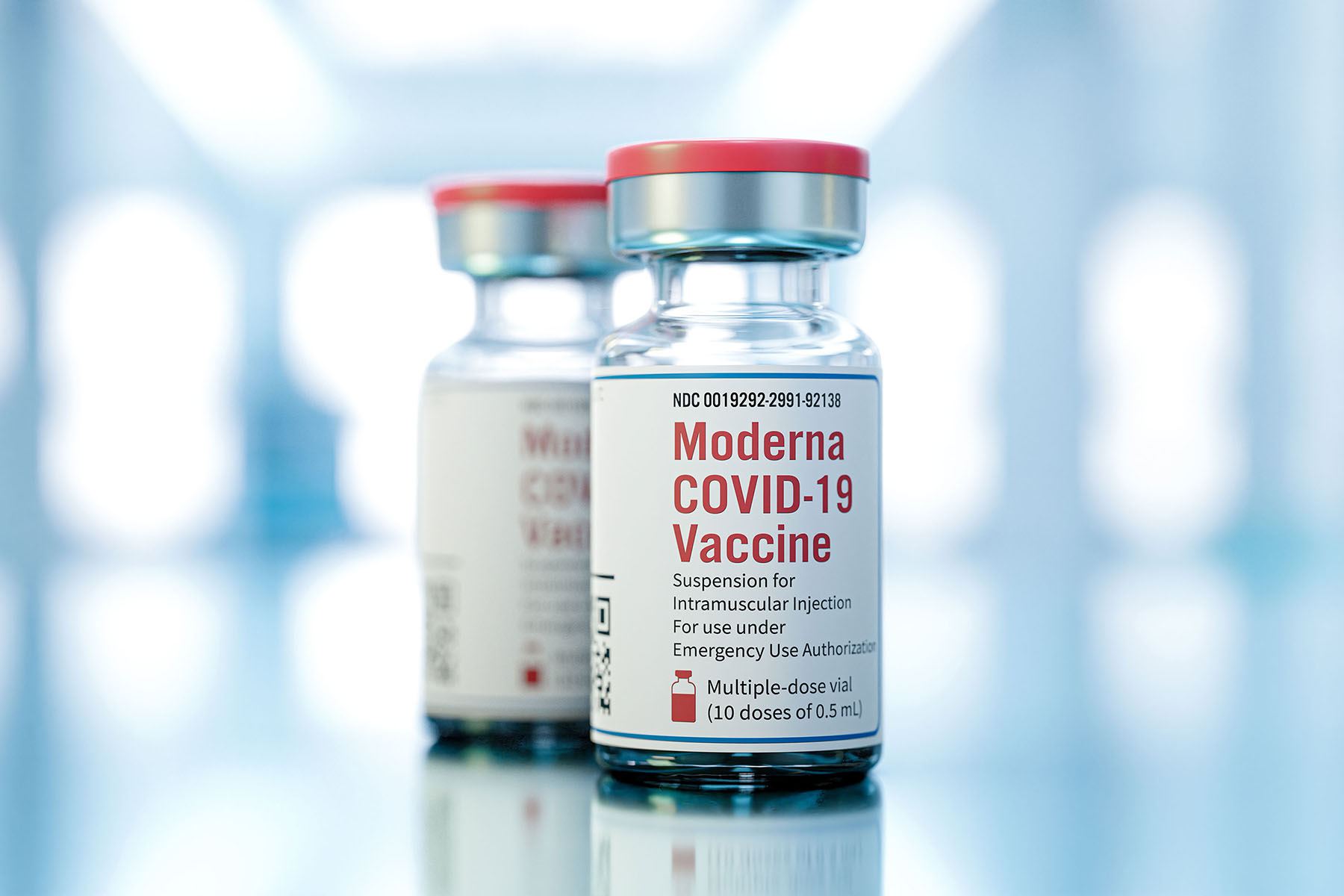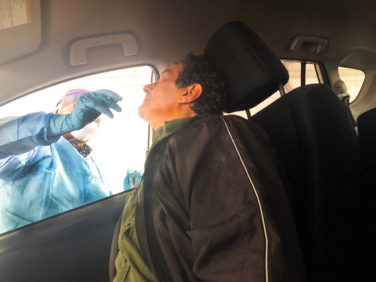Moderna v. Pfizer and BioNTech
Moderna is suing Pfizer and BioNTech for patent infringement on their COVID-19 formula, which the company claims was built with novel technology they had developed and patented years prior. The legal battle is not likely to effect COVID-19 vaccine access, but the winner of the court battle will likely be left with a majority of the profits from the mRNA medical technology. This means Moderna is attempting to be the company that anyone who wants to use the mRNA technology must come to for licensing, therefore earning royalties from all the future medical breakthroughs sure to come from the focus of vaccine and therapy development via an mRNA pathway.
Moderna is seeking damages, which could include royalties and lost profits, incurred since March, when the company said it would begin enforcing its COVID-related patents in wealthier countries. The lawsuits do not seek damages from Pfizer’s sales to the world’s poorest countries or any damages that would be the responsibility of the U.S. government, which has bought hundreds of millions of doses of the Pfizer-BioNTech vaccine.
Moderna spent years before the COVID pandemic developing technology that allows vaccine development by modifying mRNA to direct proteins to make portions of viruses that build an immune response in the body. Though they were focused on other infectious diseases prior to 2019, they invested billions from investors and the government to tailor it to COVID-19 for rapid vaccine development. Moderna’s suits claim that Pfizer and BioNTech copied crucial aspects of its patented technology, which include making the same chemical modification to their mRNA and targeting the same type of protein, or spike protein, that Moderna scientists had pioneered years earlier. However, the company’s goal is not to stop production or sale of Pfizer and BioNTech’s vaccine, but acquire royalties. Experts say litigation will take years without much effect on the actual production, price, or availability of the vaccine in question.
Medable Expands Global Access to Vaccine Trials
Medable Inc. is launching new software solutions that can be used by life sciences companies to expedite vaccine development in response to outbreaks. The software will do so by providing pre-configured modules for vaccine clinical trials that increase operational efficiency, while cutting deployment times from more than 12 weeks on average to as little as five weeks. So far, optimized digital solutions haven’t been produced for vaccine trials. These types of trials can benefit from a decentralized approach because they require global remote access; fast results across a high volume of participants; low operational complexity compared to other trials; and high reliance on patient-reported outcomes. Now, Medable’s new patient-first data collection solutions enable faster vaccine trials, better site and patient experiences, and expedited data delivery.
Medable’s “core” vaccine offering is built for speed, including a pre-configured set of modules—including pre-screening, eConsent, TeleVisit, real-time data reporting, and custom notifications—that enable sponsors to deploy in as little as five weeks while meeting industry standards. The “flex” vaccine offering provides the same core tools along with custom-designed digital products to meet specific protocol needs—including automated data access via sensors and wearables; more complex clinical outcome assessments; integration with additional clinical systems; and additional language support.
“Speed, access, and data quality are all critical for vaccine trials, and we’ve worked hard to enable all three with Medable’s decentralized trial platform,” said Musaddiq Khan, Vice President and Head of Therapeutic Area Solutions at Medable. “By codifying the most common elements across vaccine trials, we minimize the need to do a ground-up build for every new study. That not only speeds up deployment, but it also allows for more robust remote data collection and broader global access to reach vaccine-naïve parts of the world.”
The pre-packaged solution has been used in more than 300 decentralized and hybrid clinical trials in more than 60 countries, reaching over one million patients and research participants across the globe. These trials provided 200% faster enrollment and 50% cost reductions over traditional methods.
Partnership Develops Oral COVID-19 Therapy
Tetra Bio-Pharma, a leader in cannabinoid-derived drug discovery and development, joined forces with Cellvera Global Holdings, a biopharma focused on oral therapies and monitoring tools to address life-threatening viral diseases, to develop an oral treatment combo for COVID-19, consisting of candidate ARDS-003 and the proven broad-spectrum antiviral Qifenda 400MG (Favipiravir). Cellvera owns the rights to the brand originator Favipiravir, to treat pandemic influenza. The broad-spectrum antiviral drug is effective against 12 families of viruses, including coronaviruses, and works by inhibiting the replicating protein of the virus.
The companies combined their expertise to use drug-discovery AI technology to identify ARDS-003 as having the potential to allow rapid virus clearance and provide longer-term patient benefits with Favipiravir by tackling some SARS-CoV-2 specific symptoms, such as severe pulmonary inflammation. Guy Chamberland, CEO and Chief Regulatory Officer at Tetra commented, “This partnership with a pharmaceutical company with global reach is a sign of the potential for the ARDS-003 drug asset. We look forward to working jointly with Cellvera to bring this combination drug product forward to improve treatment options for patients worldwide.”
Partnership Advances Innovative Clinical Trials for AFib

InCarda Therapeutics is readying for Phase III clinical trials for InRhythm, an orally inhaled flecainide for patients with atrial fibrillation (AFib)—one of the most common heart arrhythmias that affects one in four adults over the age of 40. InCarda will work with Syneos Health and physIQ, a leader in continuous remote patient monitoring and data analytics, on the upcoming clinical trials. The trials will use wearable sensors and the FDA-cleared AFib digital biomarker developed by physIQ, which will capture real-world patient data in near real-time to accelerate the speed of pre-screening and enrollment of 400 patients in 100 clinical sites across Europe and North America.
The study protocol is unlike those seen in the past. As soon as a patient experiences a suspected AFib episode, they will self-apply a physIQ-provided biosensor patch which will confirm an AFib diagnosis and direct the patient to the nearest trial site via their smartphone application. At the trial site, the patient will be evaluated for study eligibility using an ECG and physical exam. If confirmed for continuous AFib, the participant will be randomized to receive either the active or a vehicle-matched placebo inhalation solution. The physIQ wearable will remain on for up to 90 minutes following initiation of dosing to continuously monitor participants for efficacy and safety.
“Speed is a critical factor throughout in this groundbreaking trial design,” stated Steve Steinhubl, MD, Chief Medical Officer of physIQ. “Using wearable data transmission and our FDA-cleared algorithm to confirm AFib symptoms, we can enroll eligible patients and validate drug delivery endpoints within just hours. With three biopharmaceutical leaders converging to tackle this widespread health issue in an innovative way, our hope is to bring AFib patients an easier, more convenient treatment to alleviate their symptoms safely and rapidly.”







